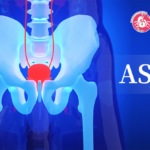
Editor's Note: mRNA cancer vaccines are an emerging cancer treatment strategy that uses mRNA technology to encode tumor-associated antigens, stimulating the patient's immune system to fight cancer cells. With the successful application of mRNA technology in vaccine development, its role in cancer treatment is gaining increasing attention. mRNA-4157 is a novel personalized cancer vaccine that has shown promising efficacy in clinical trials. In the phase II KEYNOTE-942 study, mRNA-4157 combined with pembrolizumab extended relapse-free survival (RFS) for high-risk melanoma patients compared to pembrolizumab alone. At this year's ASCO meeting, the study presented updated 3-year follow-up data. Oncology Frontier has compiled and summarized the findings for our readers.Study Overview
Personalized neoantigen therapy mRNA-4157 (V940) combined with pembrolizumab for resected melanoma: 3-year update of the mRNA-4157-P201 (KEYNOTE-942) trial (Abstract Number: LBA9512)
Background
mRNA-4157 is a novel mRNA-based personalized neoantigen therapy designed to increase endogenous anti-tumor T-cell responses by targeting patient-specific tumor mutations. In the initial analysis of the phase II mRNA-4157-P201 (KEYNOTE-942) trial (median planned follow-up of 23 months), patients with completely resected, high-risk stage IIIB-IV skin melanoma treated with mRNA-4157 combined with pembrolizumab showed extended RFS and distant metastasis-free survival (DMFS) compared to pembrolizumab alone (Weber JS, et al. Lancet. 2024).
Methods
Patients were randomized 2:1 to receive mRNA-4157 (1 mg, IM, up to 9 doses) plus pembrolizumab (200 mg, IV, up to 18 cycles) or pembrolizumab alone. The primary endpoint was investigator-assessed RFS; secondary endpoints included DMFS and safety. A pre-specified supportive analysis was conducted when the last randomized patient completed ≥2 years of follow-up. Translational subgroup analyses were reported. Human leukocyte antigen (HLA) genotyping was performed using exome sequencing of peripheral blood mononuclear cell (PBMC) DNA. RFS and DMFS were not formally tested.
Results
Following an additional year of follow-up after the initial analysis (data cutoff date: November 3, 2023; median follow-up 34.9 months, range 25.1-51.0 months), few new events occurred. The combined treatment group continued to show RFS benefits compared to the monotherapy group, with a 49% reduction in the risk of recurrence and/or death (HR 0.510, 95% CI 0.288-0.906; P=0.019). The 2.5-year RFS rates were 74.8% for the combined treatment group and 55.6% for the monotherapy group.
The combined treatment group also showed clinically meaningful sustained improvement in DMFS compared to the monotherapy group (HR 0.384, 95% CI 0.172-0.858, P=0.0154).
The 2.5-year overall survival (OS) rates were 96.0% for the combined treatment group and 90.2% for the monotherapy group (HR 0.425, 95% CI 0.114-1.584).
The combined treatment group maintained RFS benefits in multiple subgroups compared to the monotherapy group, including high tumor mutation burden (TMB) (HR 0.564, 95% CI 0.253-1.258), non-high TMB (HR 0.571, 95% CI 0.245-1.331), PD-L1 positive (HR 0.471, 95% CI 0.226-0.979), PD-L1 negative (HR 0.147, 95% CI 0.034-0.630), and ctDNA negative (HR 0.207, 95% CI 0.091-0.470) subgroups. The HR for the ctDNA positive subgroup could not be estimated.
No significant association between any single HLA allele and RFS was observed in either treatment group. In the monotherapy group, maximal heterozygosity of HLA class I gene loci (A, B, C) improved RFS compared to homozygosity at ≥1 locus (HR 0.425, 95% CI 0.179-1.01), but no improvement in RFS was observed in the combined treatment group (HR 1.252, 95% CI 0.498-3.146).
Patients tolerated mRNA-4157 well, and the safety profile of mRNA-4157 plus pembrolizumab was consistent with previous analyses, with no enhanced immune-related adverse events.
Conclusion
This analysis, with a median follow-up of 3 years, shows that mRNA-4157 combined with pembrolizumab provides durable and meaningful long-term RFS and DMFS benefits compared to pembrolizumab alone. An improvement trend in OS was also observed with the combined treatment. HLA and translational subgroup results suggest that mRNA-4157 combined with pembrolizumab may benefit more patients compared to pembrolizumab alone.


